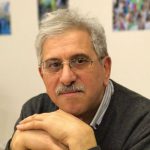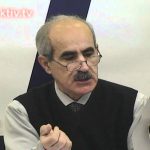“We cannot welcome the fact that the overall situation of human rights in the country has deteriorated over the last year”.
 Stefan Füle – Speech at the meeting of EU-Azerbaijan Parliamentary Cooperation Committee
Stefan Füle – Speech at the meeting of EU-Azerbaijan Parliamentary Cooperation Committee
Chairmen, Honourable Members,
This is an important moment for European Union-Azerbaijan relations. The frequency of debates on the country and the relations with the European Union in the framework of the Eastern Partnership show that the depth and intensity of our contacts are growing. This is also reflected by the large number of high level visits from European Union institutions to Baku including my own at the opening of the second Euronest session in April.
It is also fair to say that we are reaching a decisive moment in defining our expectations and our ambitions in our relationship. There may be some in this room who are disappointed at the extent of our cooperation. I am among those who believe that this is the right moment to dispel possible mistrust and misunderstandings. We need clarity in our relations and clarity on the intentions in the framework of our cooperation.
The common values which underpin our partnership are well known. They have been confirmed by the Warsaw Eastern Partnership Summit. These values are: liberty, democracy, human rights and fundamental freedoms and the rule of law. These are the same values which have allowed members of the European Union to secure peace and prosperity after the Second World War and are now enshrined in the Treaty of Lisbon and the Charter of Fundamental Rights.
By making these values a central part of the Eastern Partnership we wish to extend the area of stability and security to the Eastern part of our continent. We want to see our partnership with our Eastern neighbours becoming more strategic and based on a stronger foundation than just economic cooperation. We want a real partnership based on a joint commitment to democracy, freedom and human rights.
Such a partnership requires serious engagement on both sides, hence the “more for more” approach: more support from the European Union in return for more progress towards democratic and economic reforms. The role of civil society is paramount in this respect. A strong civil society is required in order to transform and modernize society and to build deep democracy with political pluralism and a system of checks and balances.
Against this background, I understand there are growing concerns among honourable members of the European Parliament that the path recently chosen by Azerbaijan might be on a collision course with our common European values. Our job is to avoid such a collision hypothesis.
Having said that, I have three remarks to make:
First, Azerbaijan is a proud nation, a stable country in a fragile neighbourhood, a country that has opted for a tolerant, open, secular society. A country which already today is an important hub for energy, infrastructure and logistics in a new Silk Route. And, clearly, the potential of Azerbaijan in these domains has not yet been fully exploited.
Azerbaijan’s achievements in many fields are laudable. Just last month it successfully hosted Eurovision 2012 which was seen by over 100 million viewers. One can only praise its economic growth, stability and its predictable investment climate.
However, President Aliyev has often stated that economic reform without political and social reform is doomed to failure. I couldn’t agree more. While our economic relationship grows, while our energy cooperation has reached a strategic level, somehow there exists a certain irritation when we touch on fundamental freedoms. This should not be the case. There should be no taboos in our relationship.
Between friends we need to be frank, sincere and transparent. We cannot welcome the fact that the overall situation of human rights in the country has deteriorated over the last year. We cannot welcome the fact that still at this moment there are journalists and political activists behind bars. We cannot welcome activities that intimidate journalists or human rights defenders.
Let us make one thing clear: there are no discounts on these principles. We are aware that there are regional constraints in the Southern Caucasus. We know the security challenges at many levels, but they should not be used as alibis by anybody. Therefore, we will still encourage the authorities in Azerbaijan to continue and to deepen the reform process and also to create the necessary conditions for a fair and transparent process in the run up to the presidential elections next year including in the areas of freedom of expression, assembly and media.
Last April I had the opportunity to personally convey European Union concerns and views on the country’s human rights record to the Azerbaijani authorities and I am convinced of their good intentions to address these. They can count on my and our support in this regard.
I come now to my second remark. Any association, any approximation is sustainable only if it is backed by public opinion and therefore accompanied by progress to the benefit of the people of Azerbaijan in areas such as:
increased mobility between the European Union and Azerbaijan;
increased education exchange opportunities;
the resolution of the Nagorno Karabakh conflict.
To achieve these and other goals we need serious engagement. That is why I have recently been saddened by the lack of progress in providing the necessary information on Public Finance Management Reform, a pre-requisite to mobilise our very substantial budget support programmes in Azerbaijan. The current lack of progress jeopardizes a series of programmes with subsequent loss of substantial European Union financing.
My last remark has to do with the conflict. Most of you certainly share some disappointment on the lack of progress in these 20 years of efforts for a settlement. However, we need to resist any recourse to populism. That would be too easy. Inflammatory language may provide some temporary comfort but it can easily lead to spirals of violence, perhaps sometimes going beyond our control. Therefore, let us all agree on rejecting such practices, wherever they come from. In order to solve the conflict we need to heal many open scars. Let’s be clear. There is no easy solution. Compromise is necessary.
The European Union supports all efforts of the OSCE Minsk Group to find a political solution to the conflict and would like to concentrate on the human face of reconciliation such as:
building bridges between the communities; and
building communication channels.
A new set of confidence building measures is being prepared and will soon be launched to help public opinion to prepare for a peaceful coexistence, whatever the final solution may be. At the end of the day, the two neighbours, Armenia and Azerbaijan will always live side by side.
The European Union is strongly committed to further improving the relationship with Azerbaijan. The President of the European Council will visit Azerbaijan on 5 July to personally contribute in this direction. In order to do that however, we need, as I said at the beginning, to clearly understand our common objectives in the framework of our cooperation without hidden agendas or hidden messages. I have not the slightest doubt that this parliamentary Cooperation Committee meeting could provide for precisely this.
Chairmen, Honourable Members,
I remain personally committed to engaging even more with Azerbaijan through sincere dialogue. Let’s continue that dialogue now
Thank you very much.
EU-Azerbaijan Parliamentary Cooperation Committee/Brussels 20 June 2012


